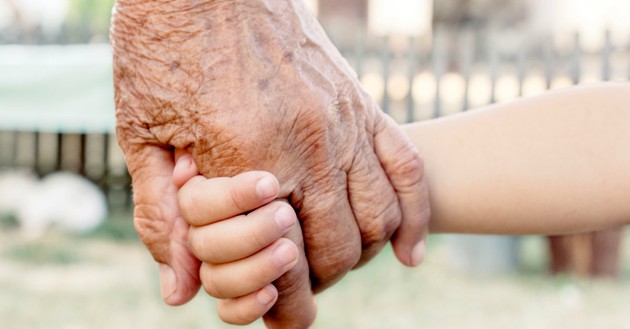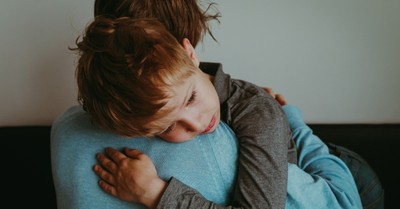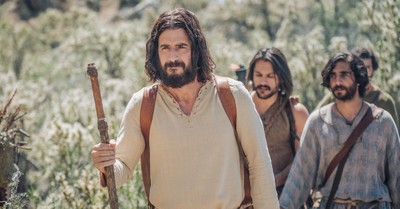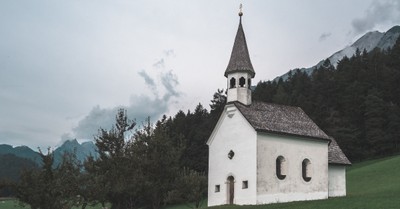What My Grandmother Taught Me about the Church
- Updated Feb 03, 2016

On the way to my grandmother’s funeral, I found myself noticing, in a gas station checkout line, a pack of Dentyne gum. I don’t think I had thought about the little red bits of cinnamon in years, but the package stood out to me. My grandmother, Agnes Moore, would give me half a piece of that gum every time we would sit down in church. It was always a half piece, because she couldn’t stand the sight of someone visibly smacking gum. All sorts of memories filed forward. I suppose that’s because I can only think of that gum in the context of church, and, in a very real sense, I can only think of the church in the context of her.
My family was always at Sunday school and Sunday morning worship, but my grandmother, who lived next door to us, expected more from me. She was widowed early in my life, losing my grandfather who had been pastor of my home church, Woolmarket Baptist in Biloxi, Mississippi. She was lonely, and I knew it, so I would spend many evenings in her house, snapping beans or shelling peas in front of the fire. And on Sunday evenings I would go with her to Training Union (kind of a Baptist Sunday school at night) followed by Sunday evening services. On Wednesday night, she would take me to Royal Ambassadors (kind of a Southern Baptist Boy Scouts, where we would learn about international missions) and Wednesday night prayer meeting. She would take me to all the fifth Sunday dinners on the grounds and every revival meeting.
There was only one event in the church calendar we would always miss: business meeting.
The business meeting was the congregational gathering to discuss and vote on questions such as the church budget and any problems in the congregation. Once a month, she would always say, “No church tonight; it’s business meeting.” I always assumed growing up that “business meeting” was the ecclesial equivalent of “federal holiday.” Only later did I learn that people actually showed up for these meetings.
When I was older, I asked my grandmother, “Why did we never go to church on business meeting night?” She replied, “Because I wanted you to be a Christian.” She knew that those meetings would often turn into arguments, petty power plays, and proxy wars for people who had grudges about other matters.
I would always tell that story as an adult and laugh, but I realize now that she wasn’t really joking, at least not completely. I didn’t know it, but my grandmother was shaping and forming me to see the church in ways that took seriously both grace and nature, both creation and fall. She knew that I needed to see the church as home, as family, as my tribe of belonging. She knew that doesn’t happen with just a once-a-week stop-in. She helped build a churchly ecosystem around my life, established with the rhythms of familiar hymns, weekly patterns, even that stick of gum from her purse every time. And it worked. My childhood was embedded in the life of that little church, and from that I was connected to the larger, broader Body of Christ across time and space. Hearing the Bible, singing the Bible and enacting the Bible meant that when I heard, personally, the voice of Christ in the gospel, it was a sound I’d learned to expect to hear one day. That saved my life.
At the same time, her savvy about the business meetings kept me from idealizing the church. By showing her disapproval of this one aspect of church life, she modeled for me that she was aware that the church was often an arena for sin and brutality. That saved my life too. If I had grown up completely sheltered from that reality, I might have reached a point of disillusionment and disappointment when the church I encountered in adulthood seemed, as it often does, such a place of apathy, lawlessness, and brutality.
Sometimes people will ask me how difficult it must be to work in such a Christless place as the government arenas of Washington, D.C. I will usually respond that I find Washington far kinder and less vicious than many people who claim the name of Christ. My grandmother didn’t expose me to that reality too early, but she prepared me for it. That saved my life too.
Her pulling me toward the church taught me to love it. Her pullback from some aspects of the church helped me to see that Jesus is Lord, and that the foibles and follies of human beings do not extend to Him. I have needed both lessons often, starting when God was calling me to ministry and I saw many models of ministry that were far from anything commended in the Holy Scripture or consonant with the gospel I’d embraced. I was able, thanks to her, to love the church enough to see beyond its present form to the great cloud of witnesses of the kingdom of God, in which there is no need for business meetings.
It is often said in my baptistic tradition that “God has no grandchildren.” We are either sons and daughters or we are not. One is not justified by family connection. To that I say yes and Amen. But God’s children sometimes are blessed to have grandmothers. And sometimes they are what we need to learn what it means to be the children of a Father.
Her funeral wasn’t held in a church, but in some funeral home. But all I could think of was the church, and how much I owe to her to be part of it. All I could think was “thank you,” as I chewed a bit of Dentyne gum. But it was only half of a piece, so you would never know.
Publication date: February 3, 2016



















